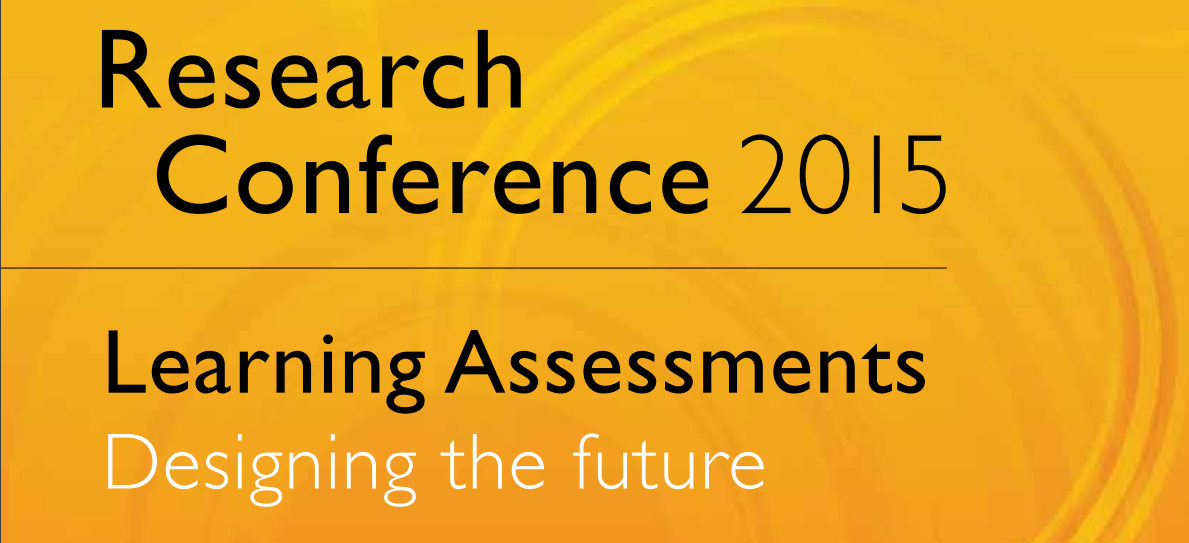
Tuesday 18 August 2015
| 2015 | ||
| Tuesday, August 18th | ||
|---|---|---|
| 9:00 AM |
Stealth assessment in video games Val Shute, Florida State University 9:00 AM - 10:15 AM Games can be powerful vehicles to support learning, but their success in education hinges on getting the assessment part right. In this presentation, I will explore how games can use stealth assessment to measure and support the learning of competencies critical for the future. I will discuss what stealth assessment is, why it is important, and how to develop and accomplish it. I will also provide examples within the context of a game called Physics Playground that I designed and developed with my team. I’ll share what has been learned by recent research on stealth assessments in games, including: Does stealth assessment provide valid and reliable estimates of students’ developing competencies, including qualitative understanding of physics, persistence, and creativity? Can students actually learn anything as a function of gameplay? Are games designed with stealth assessment capabilities still fun? |
|
| 10:15 AM |
10:15 AM - 10:45 AM |
|
| 10:45 AM |
Phillip Dawson, Deakin University 10:45 AM - 12:00 PM Hackers exploit weaknesses in a system to achieve their own goals. In this paper I argue that hacking presents a significant threat to the growing world of online assessment. This threat needs to be addressed through a variety of means; technological anti-hacking approaches will not be sufficient. The most effective ways to prevent hacking may be changes to the assessment tasks themselves to make hacking less tempting; these approaches also have a range of positive side effects in terms of authenticity, transparency of criteria, and ensuring tasks involve work beyond the exam. I conclude with a brief exploration of the ways that teachers may also hack assessment systems. |
|
| 10:45 AM |
The move to NAPLAN online: The advantages and the road ahead Stanley Rabinowitz, Australian Curriculum, Assessment and Reporting Authority (ACARA) 10:45 AM - 12:00 PM The task of developing and delivering the National Assessment Program — Literacy and Numeracy (NAPLAN) online presents enormous challenges. Nonetheless, the benefits of taking this on are well worth the efforts. With a tailored test design, NAPLAN online will provide a better measure of the Australian Curriculum, more precise results and a significantly faster turnaround of those results. NAPLAN will begin its delivery online in 2017, with an opt-in period until 2019. To ensure readiness, a large amount of research is being conducted through the Australian Curriculum, Assessment and Reporting Authority to inform the development process. This presentation will address the advantages of moving online, as well as outline several key research studies to be conducted prior to the test’s implementation, including: |
|
| 10:45 AM |
Translating rich learning assessments into certified results and university selection devices Gabrielle Matters, ACER 10:45 AM - 12:00 PM There are challenges in designing a set of high-quality processes in senior assessment and tertiary entrance that meet the needs of future senior secondary school students and future users of the certified results of learning assessments. Assessment and selection arrangements should look to the future rather than backwards to arrangements that might have existed in the past or that presently operate, unexamined, in other places. Teachers need to be convinced that the richness of students’ learning assessments will not be lost or transmogrified in any new processes for grading or ranking. A set of principles should guide the design of a new system — a set that gives pre-eminence to, but goes beyond, validity and reliability. This paper introduces the principles that guided deliberations in the recent review of senior assessment and tertiary entrance in Queensland, and describes, in simple terms, the design features of a new system based on the review’s recommendations. |
|
| 10:45 AM |
Assessing general capabilities Julian Fraillon, ACER 10:45 AM - 12:00 PM There is growing interest in general capabilities and cross-curricular learning outcomes such as literacy in information and communication technologies, creative thinking and collaborative and individual problem-solving. As the expectation for such competencies to be taught in schools has increased, so has the need for teachers and schools to validly and reliably assess student learning in those areas, and to report on them in ways that teaching and learning. In this presentation examine the challenges of assessing on student learning and learning growth capabilities and cross-curricular learning present approaches used in research some of these challenges and reflect can be applied in the classroom. |
|
| 12:00 PM |
12:00 PM - 1:00 PM |
|
| 1:00 PM |
Designing the future for assessment - Panel Session Rukmini Banerji, Pratham and ASER Centre, India 1:00 PM - 2:30 PM Speakers to include: Prof Marie Brennan, Victoria University; Prof James W Pellegrino, University of Illinois at Chicago, USA; and Prof Val Shute, Florida State University, USA. |
|
| 2:30 PM |
Geoff N. Masters, ACER 2:30 PM |
|

